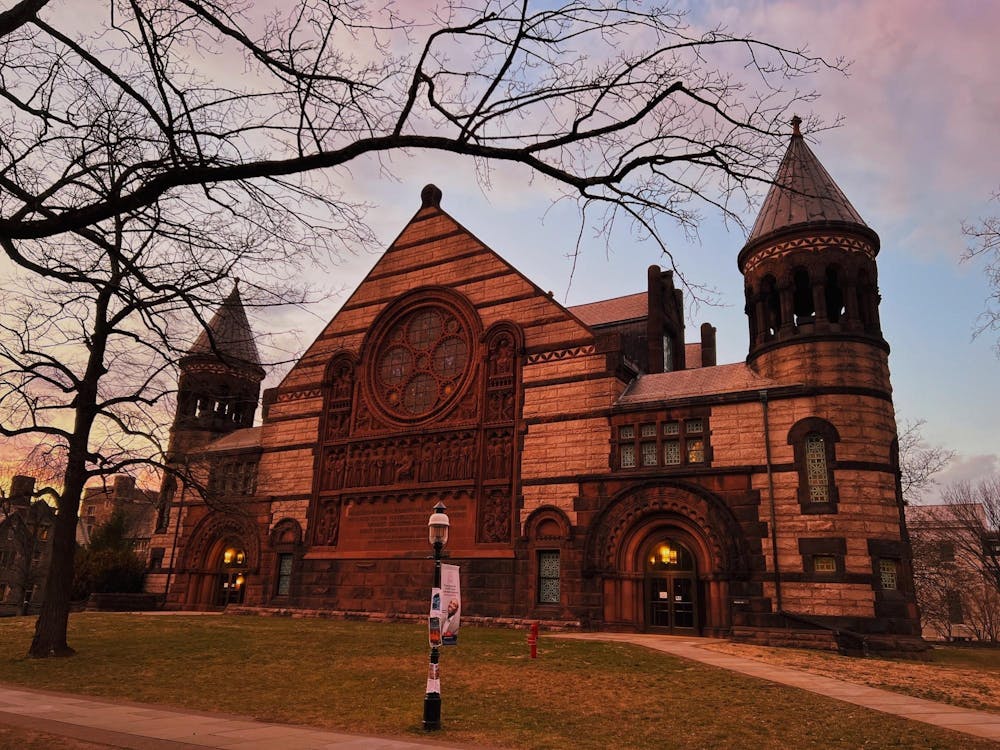Reserving Richardson Auditorium, the largest performing arts space on campus, is presenting a problem for student-led performance groups at Princeton. The auditorium, renovated in 1984 to become a world-class concert hall, is one of the most coveted spaces for student performances.
“I think it’s always been a dream of people in Opus to perform in Richardson,” said Albert Zhou ’24, who serves as the president of the undergraduate chamber music collective Opus, in an interview with The Daily Princetonian. “Richardson is just such a nice space to perform music in, and we would just love the opportunity to use it at some point.”
However, reserving Richardson for shows has caused frustration among student groups like Opus due to its high demand.
“It’s frustrating how long the waiting list is,” Zhou said, adding that the list is at least two years long. “I’m a senior, so even if I managed to get Opus on the waiting list, I won’t be here by the time we finally have the chance to get Richardson. Half of the club will no longer be here.”
Sean Park ’24, the former president and current member of the student a capella group Roaring 20 (R20), also shared his experience with reserving Richardson for performances in an interview with the ‘Prince.’ While R20 secured the space for their 40th anniversary celebration last year, they had to reserve Richardson “about a year in advance of the event.”
“I do know [securing Richardson] was quite the struggle just because there were a lot of groups that wanted to bring back their events that they couldn’t do for the past few years because of COVID and school closure,” said Park.
“Post-COVID, it’s gotten more difficult for student groups to reserve Richardson [in a timely manner]. It’s just a long list of student groups that are constantly waiting to get access to Richardson, to be able to showcase themselves and their work, on a big stage like that. Because there’s nothing really comparable to that on campus,” he added.
When asked about how Richardson could attempt to expedite the reservation process, Park claimed that the biggest improvement would be their transparency with student groups.

“We just really wanted to understand how the reservation process works [with Richardson], and we were only able to get that information once we reached out … I’m assuming there are still a lot of groups left in the dark about this information too,” he said.
In contrast, Associate Director of Performing Arts Services Kathleen Coughlin wrote in an written statement to the ‘Prince’ that the process for reserving Richardson is “fairly quick.”
“We will respond back within a week of your request. If the requested date is not available, the venues team works with students to consider alternative dates,” Coughlin wrote.
In response to a question from the ‘Prince’ about the two-year waiting list, Coughlin wrote, “If the space is available, reservations are typically confirmed within a week of the request. The challenge is that the space is heavily used, especially by the Department of Music, so availability is limited. Because of the dense schedule, it is difficult to book multi-day performances, which is something many student groups request.”

Beyond Richardson, the increase in the number of student groups at Princeton due to the growth of the student body — in addition to the desire to bring back in-person performances after the COVID-19 pandemic — has led to increasing difficulty for student groups to reserve performance spaces in general.
“We’re just generally frustrated with the difficulty in getting performing spaces here,” Zhou said. “We can sort of understand that with a really nice space like Richardson, we are sympathetic to the fact that it will be difficult to get that space. But I think compounded with the fact that it’s hard to get other nice spaces too, it’s led to a lot of frustration for us.”
Department of Music professor David Kellett, who has directed multiple productions in Richardson, shares similar sentiments to Zhou. He wrote in an emailed statement to the ‘Prince’ that the biggest issue for student performance groups is the University’s lack of a “dedicated proscenium stage (with an orchestra pit and appropriate support staff) that may be utilized 100 percent of the time by the faculty, students, and courses.”
“The creation of the Lewis Center for the Arts was certainly a huge addition for the arts community in general and for students in the performing arts,” Kellett wrote. “With all that work and expense, however, it did not add that big performance space. I think we are seeing many problems with student productions struggling to find adequate spaces to do their performances across campus. I am not sure we shall see a solution for quite some time.”
Starting with the Class of 2026, the University implemented a four-year plan to increase the size of the undergraduate student body by 500 students. “We’re getting more students, and student groups are getting bigger in response, but we’re not getting more performance spaces to go with that. I just think a lot of issues could be solved if the facilities available to arts and music groups would grow along with the size of the student population,” said Zhou. The former president of the Performing Arts Council Chris Park ’24 reiterated Zhou’s sentiment in a ‘Prince’ column last week.
Caitlyn Tablada is a contributing News writer for the ‘Prince.’
Please send corrections to corrections[at]dailyprincetonian.com.








